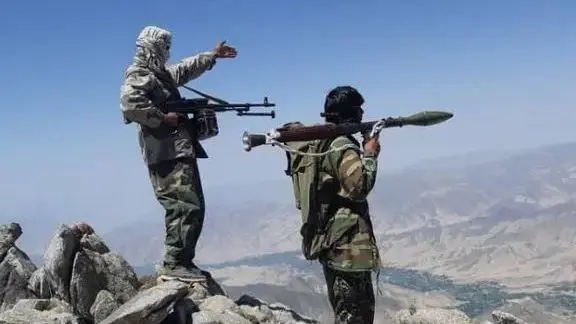RASC News Agency: The Long War Journal has recently published an article noting that the Afghanistan Freedom Front (AFF) has expanded its operations across ten provinces and is increasingly carrying out deadlier attacks against the Taliban. The report states that this year alone, the AFF has conducted 78 operations, killing 239 Taliban members, including four high-ranking commanders. The article underscores that, while global attention has been largely focused on Ukraine, Israel, and China, the war against the Taliban in Afghanistan is “heating up.”
The Long War Journal further emphasizes that although resistance groups do not yet present a direct threat to the Taliban’s “iron-fisted rule,” the scale and lethality of attacks against the group have grown in the third year of Taliban governance. Will Selber, the author of the article, points out that much of the media’s attention has been directed toward the National Resistance Front (NRF) led by Ahmad Massoud. However, the Afghanistan Freedom Front, led by Yasin Zia, has played a more significant role in resisting the Taliban.
The Long War Journal is part of the Washington-based Foundation for Defense of Democracies. Yasin Zia, the leader of the AFF, informed the publication that the group plans to escalate its offensive against the Taliban in 2025. Zia remarked, “We are determined to increase both the political and military pressure on the Taliban in 2025. We are fighting for equality, justice, and to restore power to the people of Afghanistan.”
The report also highlights that since its formation in 2022, the Afghanistan Freedom Front has launched 322 attacks against the Taliban. Of those, 78 operations took place this year, resulting in the deaths of 239 Taliban members, including four senior commanders, and wounding 147 others. Selber writes, “The war against the Taliban has intensified. While these resistance groups are not yet a serious threat to the Taliban’s dominance in Afghanistan, the lethality of the attacks has risen significantly in the third year of Taliban rule.”
Selber further notes that although neither the AFF nor the NRF has managed to capture any territory, the AFF has broadened its operational scope to include ten provinces. According to the report, the AFF has focused its attacks primarily on Kabul, targeting Taliban vehicles, government buildings, military outposts, and, in one instance, Kabul International Airport.






